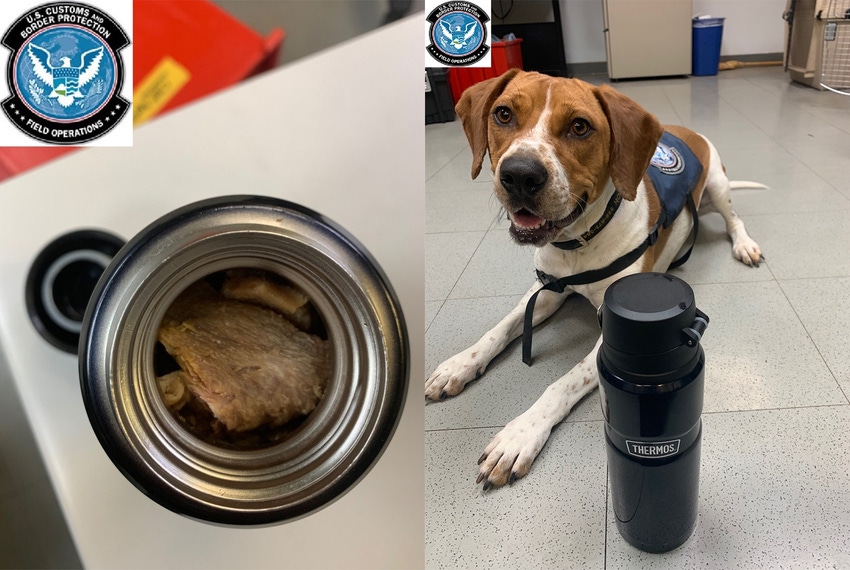Ag groups back Beagle Brigade Act of 2022
Legislation would provide permanent authorization for the National Detector Dog Training Center, located in Newnan, Georgia.
July 20, 2022

More than 50 prominent agricultural, livestock, veterinary and trade organizations are calling for the passage of H.R.8432, the Beagle Brigade Act of 2022. The bill was introduced in the House of Representatives Wednesday by Congressman Sanford D. Bishop, Jr. (GA-02), Congressman Drew Ferguson (GA-03), Congressman Dan Kildee (MI-05) and Congressman Adrian Smith (NE-03).
The legislation would provide permanent authorization for the National Detector Dog Training Center, located in Newnan, Georgia. The center extensively trains detector dogs and their U.S. Customs and Border Protection handlers to sniff out prohibited agricultural items that could carry foreign plant pests or animal diseases into our country. Senators Raphael Warnock (GA) and Joni Ernst (IA) introduced the companion bill in the U.S. Senate.
"U.S. agriculture has a trillion dollar impact on America's economy. The Beagle Brigade and their human handlers are working every day to keep foreign pests and diseases out of the country," said Congressman Bishop. "By permanently establishing the National Detector Dog Training Center, we are protecting U.S. agriculture and food supply from harm, keeping prices down at supermarkets for families, and maintaining export markets for American farmers. I am happy to lead this effort with my colleagues, Congressmen Drew Ferguson, Dan Kildee and Adrian Smith."
Providing permanent authorization for the USDA's National Detector Dog Training Center ensures the United States has a crucial tool in its fight against foreign pests and diseases that have the potential to devastate all sectors of the agriculture economy. The Center primarily trains dogs—mostly beagles—to detect fruits, vegetables and meats in international passenger baggage, mailed packages and vehicles entering the United States. Dogs are selected from animal shelters, rescue groups and private owners, and those that do not complete training are offered for adoption.
In their supporting letter, the organizations stated, "These teams play a vital role in trade and travel safety, and work every day to prevent the introduction of harmful foreign animal and plant diseases and pests into the U.S. The introduction of foreign animal diseases, such as foot and mouth disease, African swine fever, or virulent Newcastle Disease, or plant diseases, such as tomato brown rugose fruit virus, maize lethal necrosis or citrus greening disease, would have a devastating impact on U.S. agricultural producers, their communities and the economy if introduced into the U.S."
"Healthy animals ensure consumers have safe food and allow American producers, their communities, and the U.S. economy to thrive," said Terry Wolters, National Pork Producers Council president and owner of Stoney Creek Farms in Pipestone, Minnesota. "That is why NPPC joined over 50 organizations spanning the entire agriculture sector in support of the Beagle Brigade Act of 2022. Early detection at our U.S. borders has never been more critical. Training canine teams against threats like animal disease and identifying potentially contaminated products at our nation's ports of entry is critical to the safety of U.S. agriculture. We urge Congress to act fast."
"The Beagle Brigade is crucial for preventing foreign animal diseases, invasive species and pests from entering the country," said National Cattlemen's Beef Association Executive Director of Government Affairs Allison Rivera. "To continue the success of the Beagle Brigade program, NCBA is urging Congress to provide specific authorization for the National Detector Dog Training Center so canine teams can continue to provide robust inspections at U.S. ports of entry."
About the Author(s)
You May Also Like

.png?width=300&auto=webp&quality=80&disable=upscale)

